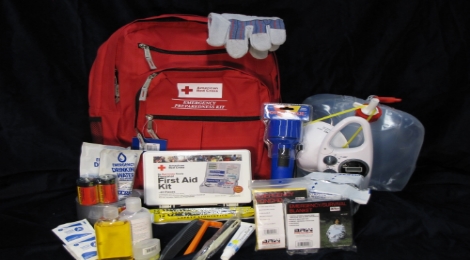It seems every time you hear the news, there is some disaster that has occurred. In Southern California, we recently had an earthquake. Around the country there have been storms, flooding, power outages, fires – as well as crazies with guns. Have you prepared for any of these catastrophes? No business should risk operating without a disaster plan. If you have one, good for you. If you don’t, it is time to start planning. We take for granted that our employees will know what to do when something happens. This is not the case. In a panic situation, people sometimes make dumb choices. Your employees need to know what you want done and how to go about doing it. A commitment to planning today will protect your business and give your company a better chance for survival.
Develop A Plan – Chances are you will not be at your business when an emergency occurs and you may not be able to get in contact with your staff. This is why it is critical that you have a written plan that everyone is aware of. Start by taking a walk through your business. Identify any potential hazards as well as identifying “safe” spots. Danger spots would include being near windows or heavy hanging objects. Determine the best escape route out of the business. You probably have a plan that your local Fire Department had you complete in the event of a fire. You can use this plan as an outline that you can build on. In preparing your plan, it is important to specify the smallest details. Your employees need to know what you want them to do in the event of a fire or earthquake. They also need to know what should be done if confronted with a violent situation. All employees should be made aware of your plan but one employee should be appointed to be in charge. Show your employee in charge how to shut off gas, water and electricity. Once you have the plan written down, share it with all your employees and discuss it. Quake Kare, emergency preparedness experts, state “Failure to maintain standards of protection for your employees opens managers and owners to liability if losses or injuries occur because of their failure to act.”
I can’t stress enough you need to have a written plan and the importance of discussing that plan with all your employees. I had an incident at my plant. I was not there and the pants topper motor caught on fire. We had two fire extinguishers and all my employees knew where they were, but I never discussed it with them. My presser, bless his heart, started beating the fire out with a rag. I later asked him why he did not use the fire extinguisher…he said he did not think about it. Don’t assume anything when developing your plan.
Develop A Plan To Continue Your Business Operations – Utilities may be turned off for days. Should you invest in a generator? Talk to your suppliers. What can you expect from them in way of support? Create a contact list for existing critical business suppliers and vendors and others you plan to use in an emergency. Form an alliance with another cleaner or cleaners who will be willing to help you, if necessary. Consider if you want to run the business from another location in the event your plant is not accessible. If you plan now, your business will survive and recover quickly.
Build A Kit Of Supplies To Be Kept At Your Location – Water, food, first aid kit, flashlight, tools and battery-operated radio should be part of the kit. Water and food are necessary in the event your employees and perhaps customers were unable to leave the premise. Employees need to be instructed to put the radio on and listen for bulletins and protective actions to take. Store these items in a sturdy, easy to carry container. Make sure everyone knows where they are located. In addition, have flashlights located in the front, middle and rear of your business. I had a power outage one evening. I happened to be at the plant but boy, it does get dark. I did not have flashlights located throughout the store and it was a hassle locating them. Power outage is another important situation to cover in your plan. Tell them how to handle this occurrence.
Planning in advance will definitely cut down on the stress and give you the ability to make prudent business decisions. What I have discussed is a brief overview. It is so easy today to go online and there is an abundance of information to be found to aid you in developing your plan. Please start working on this today. If you take these steps, you will be one of the 60% of small businesses that reopen after a major disaster.
I am sure you have a disaster plan for your home as well, don’t you?

